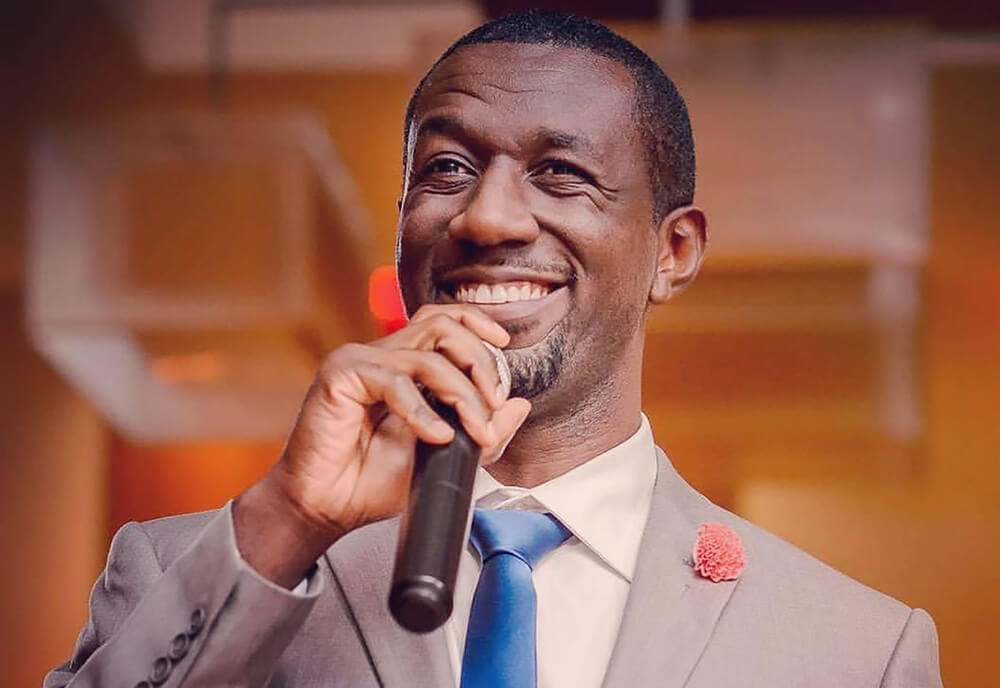International Agent
Julien Manyong Fights Global Poverty Through the Pandemic and Beyond

Born in the Democratic Republic of Congo and growing up in both Nigeria and Togo, Manyong, 33, was surrounded by people who made a difference in the world. “I was fortunate to grow up in an international community and many of my classmates were the children of prominent African leaders,” says Manyong, whose father has a Ph.D. in agricultural economics, and was the regional director of East Africa for the International Institute of Tropical Agriculture (IITA) before retiring. “We all grew up around people who had made a tremendous impact on the continent, and we shared an expectation that we could and should give back someday.”
Manyong is honoring that commitment through his work with the International Finance Corporation (IFC), part of the World Bank Group, whose mission is to end extreme poverty and promote shared prosperity. The IFC works to create markets that give new opportunities to people in developing countries by investing in private companies, mobilizing other investors and sharing its expertise. “I believe that in order to reach the 2030 millennial goal of eradicating poverty, we cannot solely rely on the public sector to improve the lives of the most vulnerable”, says Manyong. “The private sector has to be an active partner, and where it makes sense, play a leading role.”
A rising star at the IFC, Manyong’s experience at Touro’s Graduate School of Business prepared him well for his career. From classes on international business and law that strengthened his understanding of how to work effectively in different cultures, to learning how to value companies under different accounting codes, as well as how to present information efficiently, the Touro program provided important skills needed in his day-to-day role. Above all, completing the two-year degree program while working full-time steeled him for the rigors of his current, fast-paced work environment.
Working in the Office of the Vice President of Middle East and Africa (MEA), Manyong’s role requires not only an understanding of how international markets work, but also familiarity with the dynamic political, economic and social context of all of the countries in the region. Since joining the IFC two years ago, Manyong has helped develop over 12 country strategies for the region, all of which have been endorsed by senior leadership at the IFC, with two of the strategies having been presented to the president of the World Bank Group. The countries Manyong has worked on are located in different regions of the continent, with varying levels of development, population, geographic size and levels of fragility. From small economies like the Republic of Chad, which face internal and external factors that make it extremely difficult for the private sector to thrive, to large economies like South Africa, where there is a booming private sector but benefits are not shared by all of the people, the goal of each strategy is to detail a clear roadmap of what activities IFC should undertake in the next few years in order to achieve the World Bank Group’s goal of ending extreme poverty and promoting shared prosperity.
The COVID-19 pandemic has only intensified Manyong’s sense of purpose. As the pandemic accelerated the stark disparities between rich and poor, the World Bank Group mounted the fastest and largest crisis response in its history. Manyong is particularly proud that the organization has not shied away from asking how it can support the most vulnerable members of society. The IFC responded with $8 billion in fast-track financial support to help its clients sustain economies and preserve jobs. Additionally, in July 2020, IFC launched the $4 billion Global Health Platform, which is investing in companies to increase the supply of critical medical equipment and services in developing countries, including face masks, ventilators, testing kits and, ultimately, vaccines. “Our office has been a coordinator of the resources allocated to the MEA region, and worked with industry specialists to ensure that they are deployed in the right areas to have the greatest impact possible,” he says.
With his wife, Rocio Rivera, Manyong is the proud father of a one-year-old daughter, Sienna, and Manyong wants to model for his child the lesson he learned as a boy, “If you find the opportunity to make a difference, you have the responsibility to seize it.”

